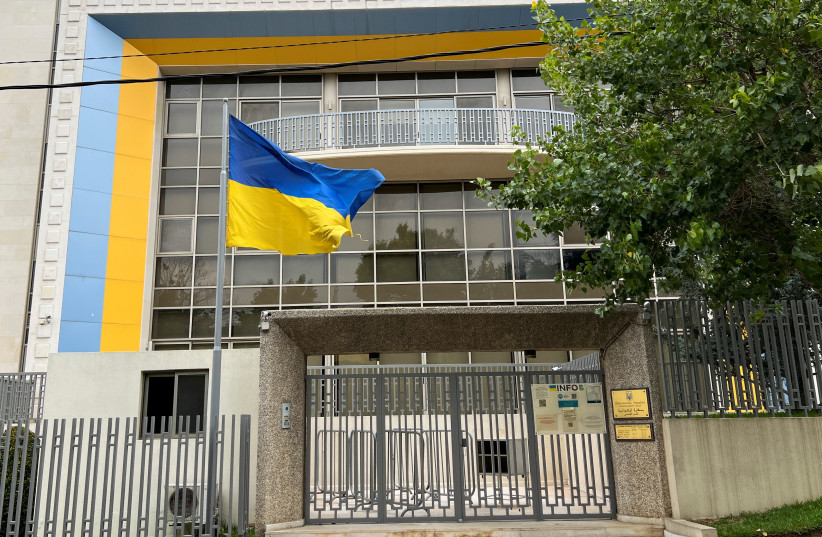Ukraine’s Ambassador to Israel Yevgen Korniychuk visited Ukrainian soldiers and citizens being rehabilitated and fitted for prosthetics at the Loewenstein Rehabilitation Hospital in Ra’anana, the Ukrainian Embassy in Israel said on Tuesday.
Director of Orthopedic Rehabilitation Dr. Hagay Amir updated Korniychuk on the progress of two injured Ukrainian soldiers who had recently arrived as part of an Israeli government program.
“We are grateful for this most important humanitarian project of the Israeli government,” said Korniychuk. “During the bloody invasion by Russia, thousands of soldiers were very seriously injured, and this initiative can help them start a new life and believe in their future.”
Amir said the hospital was prepared to receive additional soldiers for rehabilitation.
“We greatly appreciate the arrival of the ambassador to visit and support the Ukrainian soldiers hospitalized with us,” said Amir. “This has great significance in the mental and physical rehabilitation of the soldiers.”

The ambassador also visited 13-year-old Rynat Tsupryk, who has been undergoing rehabilitation at the hospital since March. According to the embassy, the Ukrainian boy has made significant progress and is starting to walk on his own again.
When did Israel start taking in Ukrainian injured?
In September, Israel began to receive the first Ukrainian injured for treatment at Sheba Medical Center many with severe limb amputations and who also required additional surgeries.
However, Ynet reported that this program was developed under pressure from the Ukrainian government. Korniychuk has been critical about the lack of combat materials sent from Israel to Ukraine, despite the country sending large amounts of non-military aid.
One of the soldiers treated in Israel returned home in early January. Pietro, in his 50s, praised the Israeli medical system for the treatment he received.
Israel has also provided medical aid within Ukraine itself. For six weeks, an Israeli field hospital, Kochav Meir (“Shining Star”) operated in the war-torn country, treating some 6,000 patients.
The project, launched in March, was led by a coalition of the Foreign and Health ministries, Israeli hospitals and healthcare providers, with help from charities such as the Schusterman Family Foundation.
